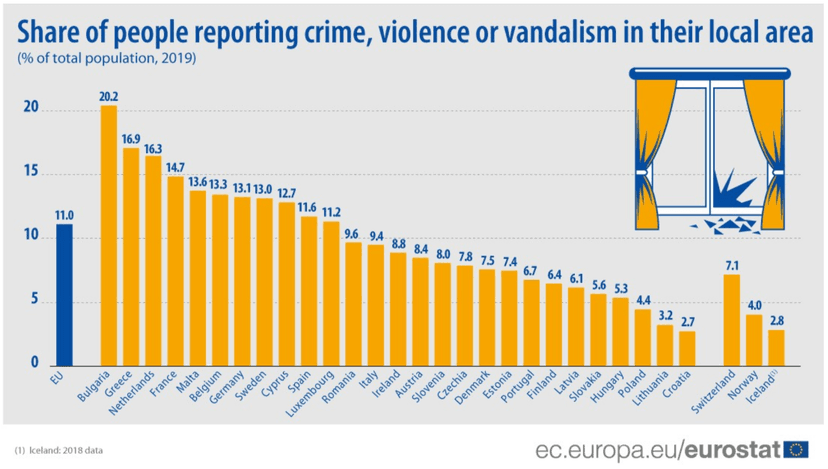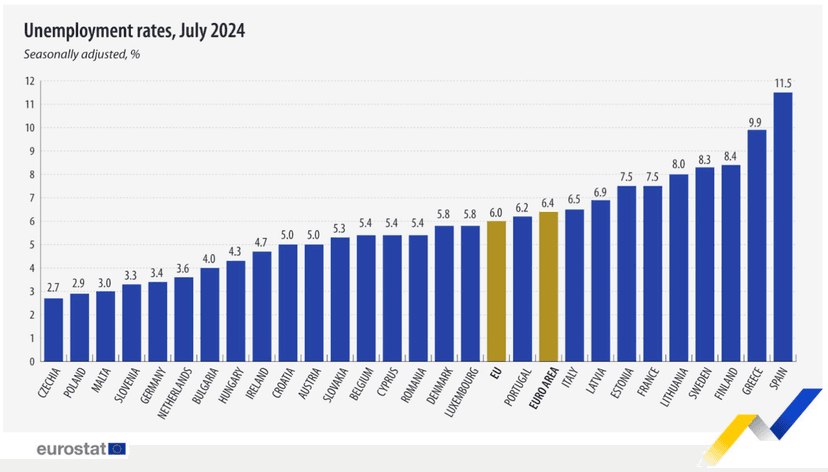

Safety, a booming economy, and low living costs. Poland has it all. Here’s why Westerners are trading in their old lives for a fresh start in one of Europe’s fastest-growing nations.
Pawel Morisson
Jan 15, 2025 - 3:55 PM
Share


Recently, an increasing number of people from Western Europe and North America have been moving to Poland. Concerns about safety, sluggish economies, and social challenges in their home countries are driving many to see Poland as an ideal place for a peaceful, stable life.
This remarkably safe country in Central Europe offers something unique in its major cities: a thriving economy with near-zero unemployment, efficient public transport, and a harmonious blend of modernity and tradition, best exemplified by its capital, Warsaw.
To support this growing wave of Western expats, the company Move to Poland has introduced a range of packages designed to guide newcomers through every step of the expatriation process, ensuring a smooth and seamless transition.
Poland has earned a reputation as one of the safest countries in Europe. It ranks as the third least criminal nation on the continent (see graph below), has one of the lowest homicide rates in the world, scored 0.0 on the 2023 Global Terrorism Index, and is nearly at the top of the ranking of safest countries for women, with only 8.6 acts of sexual violence per 100,000 inhabitants, compared to 200.3 in Sweden and 126 in France.
In contrast, many large Western cities have become increasingly unpleasant to live in due to safety concerns, forcing residents to spend a growing share of their income to secure housing in “safe” neighborhoods. In Poland, however, safety is generally not an issue, allowing people to choose a neighborhood based on more natural criteria, such as proximity to the city center or their workplace, without having to factor in crime rates.
Moreover, criminality in Poland is actually trending downward: according to the 2023 report from the Polish Ministry of Interior and Administration, crime rates are declining, a clear contrast to the trends observed in Western Europe.

Poland’s strong and steady economic growth is another major “pull factor” for Western expats. Often called the “green island” of Europe, Poland has enjoyed nearly three decades of uninterrupted GDP growth, consistently outpacing the European average. Even amid global economic challenges, the World Bank expects this trend to continue, offering stability and opportunity for newcomers.
This economic boom is visible in Poland’s urban landscapes, with Warsaw as a prime example. The city’s business district has been completely reshaped in just a few years. Skyscrapers now dominate the skyline, transforming the city almost beyond recognition for someone who left a decade ago, and the transformation is ongoing. Old Soviet-era buildings are being torn down and replaced with modern glass towers, such as the Varso Tower, completed in 2021, which is now the tallest building in the European Union.

The most attractive and rapidly growing sector in Poland is IT. In recent years, Poland has emerged as Europe’s favorite destination for tech investment, earning the nickname “Silicon Valley of Europe.” Recognizing the strategic importance of this industry, the Polish government actively supports global tech giants such as IBM, Google, and Intel through the Investment and Trade Agency. For example, the Agency recently facilitated the largest foreign direct investment in Poland’s history: an Intel project worth a colossal $4.6 billion.
Poland boasts one of the largest pools of IT engineers in Europe, with around 430,000 professionals for a population of 38 million and 15,000 new IT graduates each year. The sector contributes approximately $20 billion to the economy, representing 9% of GDP, and continues to grow rapidly.
The country’s tech-savvy population, combined with significant offshoring from American firms, has created numerous opportunities for expats, including jobs conducted entirely in English. Cities such as Warsaw, Wrocław, and Poznań have transformed into vibrant tech hubs, attracting global talent and fostering innovation.
Many young people in the West are finding it increasingly difficult to maintain a decent quality of life. A large portion of their salaries goes toward renting small flats in safer neighborhoods, while rising food prices put further strain on their budgets. At the same time, they face worsening living conditions: growing safety concerns, dirtier streets, dysfunctional and expensive public transport, and rising unemployment, all of which increase competition among young workers.
Poland, by contrast, is following the opposite trend. Average salaries continue to rise while the unemployment rate falls, making it the country with the second-lowest unemployment rate in the EU. Additionally, Poland’s minimum wage, currently around $7.35 per hour, is now higher than that of the United States.

For expats, especially digital nomads earning income from their home country, living in Polish cities is remarkably affordable. Housing, transportation, and daily expenses are a fraction of the cost compared to Western cities like London, Paris, or New York. For instance, $1,000 per month (around 4,100 PLN) typically covers a 35-50m² comfortable one-bedroom apartment in Warsaw’s most central district.

While moving to Poland 20, or even 10, years ago might have felt isolating for Westerners, today’s large cities are much more open to European markets and cultures. Expats can easily connect through regular international meetups in pubs and restaurants. They also have access to authentic global cuisine, fresh products like French baguettes, Italian wine and cheeses in supermarkets, and Neapolitan pizza on nearly every corner.
Western expats can enjoy a familiar lifestyle, but with better living conditions and significantly lower costs. Another advantage is that Polish people, especially the younger generation, speak English very well: Poland ranks 15th in the world for non-native English proficiency, according to the EF Proficiency Index.
While adapting to the Polish lifestyle and integrating into society has become simple and seamless, the process of moving to Poland - navigating the country, and obtaining a residence permit - can still be challenging, particularly due to the language barrier. This is where a company like Move to Poland comes in, supporting Western expats who are eager to start a better life in Poland but feel hesitant because of the complexities of the language and their limited knowledge of the country.
Founded by two expats who moved to Poland six years ago and experienced the entire relocation process themselves, Move to Poland offers comprehensive packages to guide newcomers through every stage of the move. Partnering with local experts, their services cover everything from legalizing a stay, securing housing and employment, and enrolling children in schools, to providing in-person administrative assistance for bureaucratic tasks such as obtaining a PESEL (Polish national identification number), registering residence, and even setting up a business.
It is no surprise that an increasing number of expats are considering making Poland their new home. This is far from a passing trend; rather, it reflects the country’s growing appeal to those seeking both peace of mind and the stimulating experience of living in a rapidly developing nation.
Share
Pawel Morisson
Co-Founder | Move to Poland